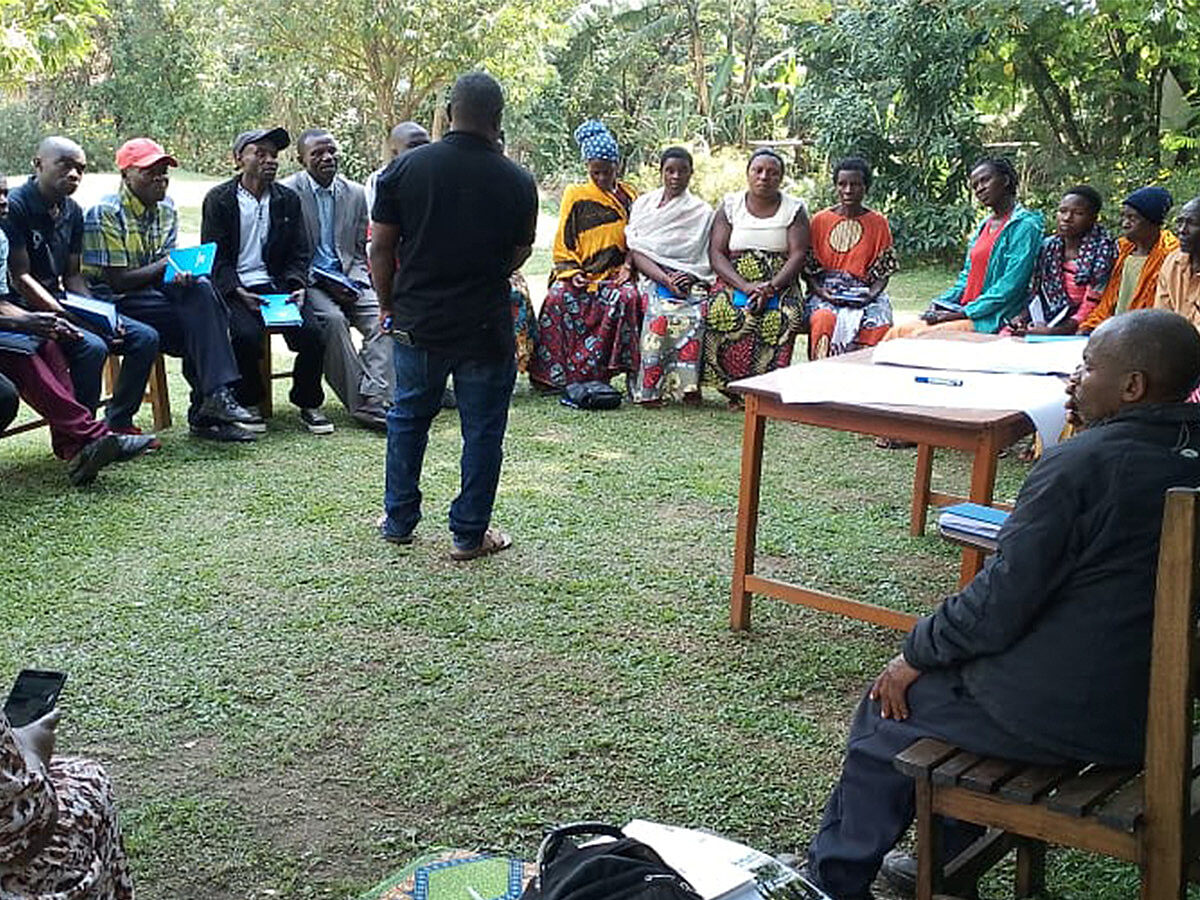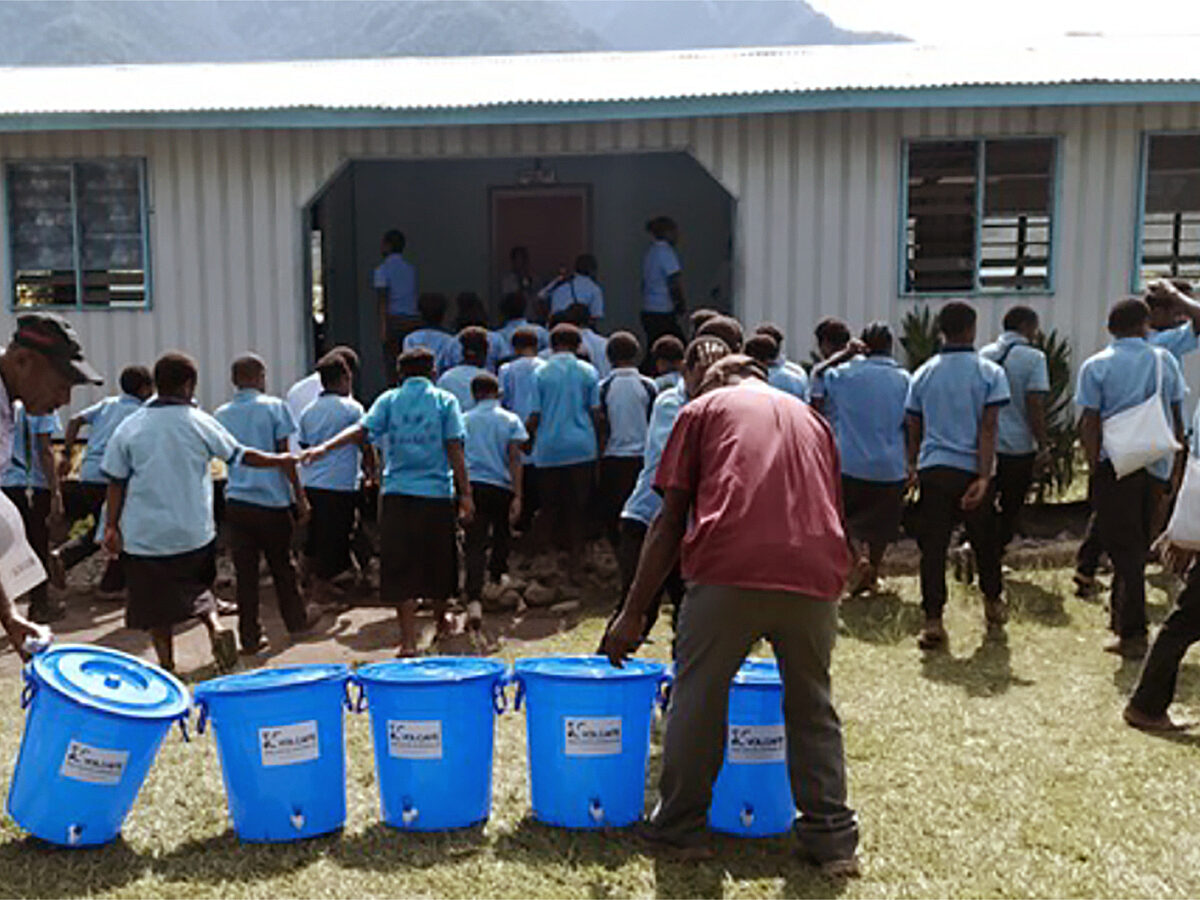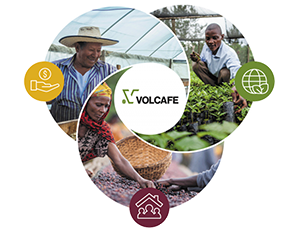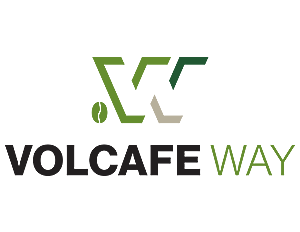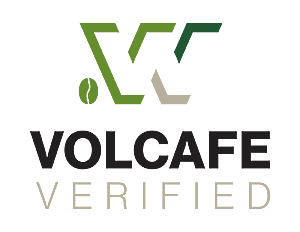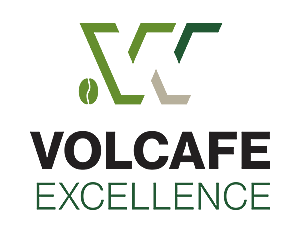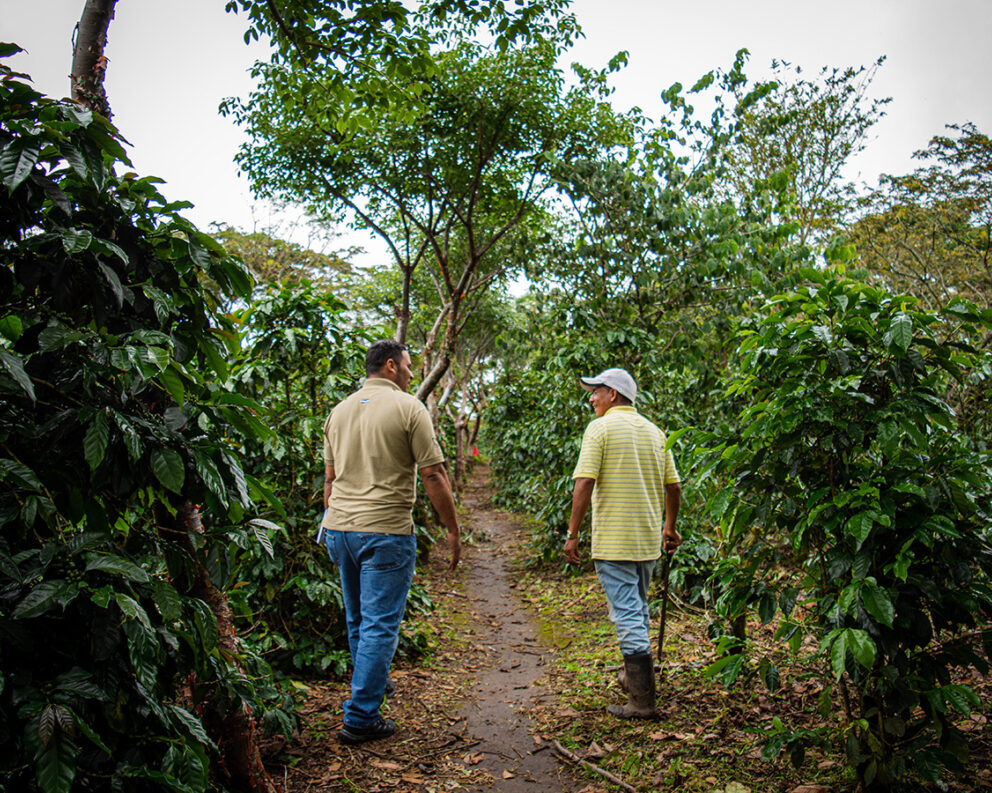Volcafe RS Standard
A standard for responsibly sourced coffeesThe Volcafe RS Standard creates a harmonised approach for sourcing coffee responsibly.
In the years since rolling out our Volcafe Way farmer support programme in 2015, Volcafe has built up first-hand, practical experience of the challenges farmers face as well as solutions that are locally appropriate. We have combined that knowledge with leading good practices into the Volcafe RS Standard, a new standard for responsibly sourced coffee.
The Volcafe RS Standard establishes two levels of practice, allowing for continuous improvement within our value chains. While both Volcafe Verified and Volcafe Excellence signify the achievement of baseline standards for responsible sourcing, Volcafe Excellence offers additional requirements, a stronger assurance model, agronomy services for producers, and enhanced traceability for customers.
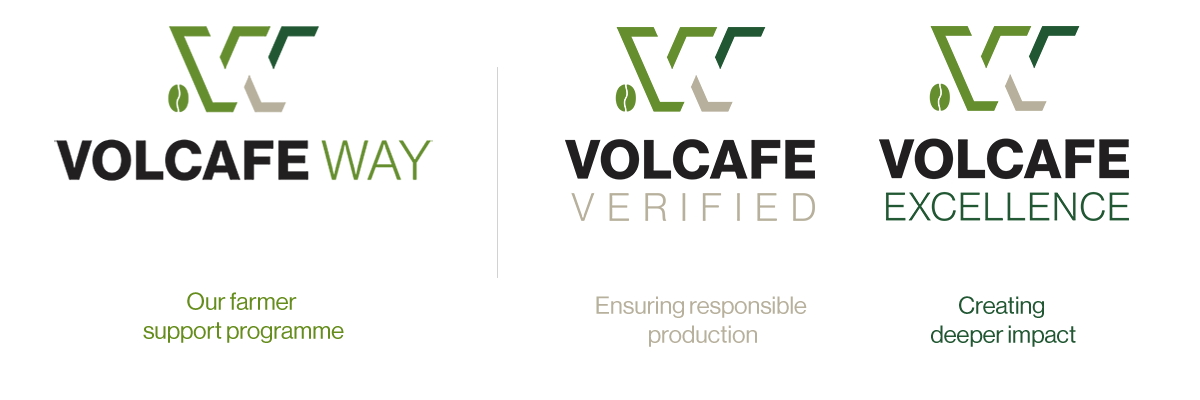
Learn about: Our Volcafe Way programme | Volcafe Verified | Volcafe Excellence
Volcafe RS Standard and EUDR
Volcafe Verified and Volcafe Excellence fully align with the requirements of EUDR. This includes 100 percent geolocation data, deforestation checks through satellite imagery partners, and local legality checks.
A formal update of the Volcafe RS Standard will be carried out during FY24/25.
About the Volcafe RS Standard
The intent of the Volcafe RS Standard is to promote sustainability in coffee value chains. The Standard also complements existing sustainability schemes and offers another sustainability solution to coffee roasters and retailers seeking to fulfil their responsible sourcing commitments.
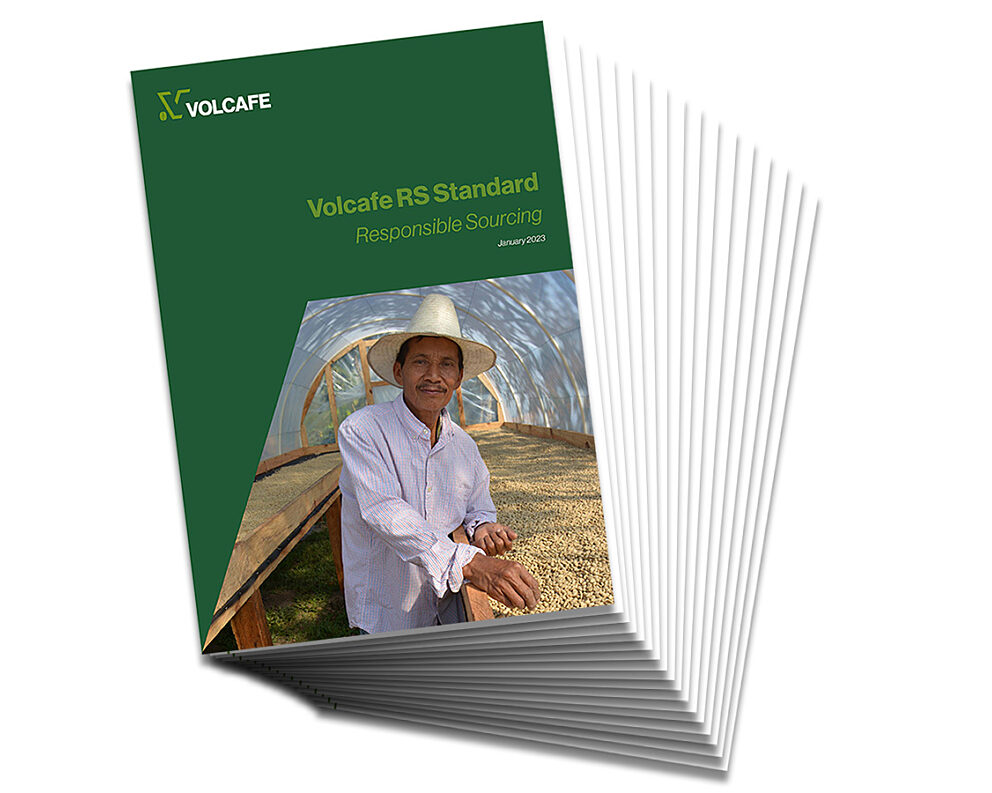
Volcafe envisions a thriving, sustainable coffee business for all. Our global sustainability strategy steers our company to make this vision a reality. Key elements of the strategy are implemented by our Volcafe Way teams, who use a range of tools to deliver on our three strategy pillars (sustainable profitability, regenerative practices, and responsible citizenship). These pillars closely align with the chapters of sustainability criteria in the Volcafe RS Standard.
The Volcafe RS Standard links our sustainability efforts to the commercial needs of our clients by offering them coffees that are responsibly sourced and providing them with key information on value chain risks, challenges, and opportunities.
Through our Sustainability Impact Services, we offer clients a range of opportunities to invest in their value chains and jointly build a more thriving, sustainable coffee business for all.
Added assurance through our experience and external recognition
Based on practices field-tested and refined through our Volcafe Way farmer support programme, the Volcafe RS Standard was developed with specific reference to the Global Coffee Platform's (GCP) Coffee Sustainability Reference Code and Equivalence Mechanism 2.0 which define a common framework for coffee-oriented sustainability schemes.
Both Volcafe Verified and Volcafe Excellence have been recognised by the Global Coffee Platform (GCP) as Coffee SR Code equivalent, second party assurance.
The Volcafe RS Standard has also been recognised by leading roasters as fulfilling their responsible sourcing requirements.
Sustainability Criteria in the Volcafe RS Standard
The Volcafe RS Standard assesses more than 50 Sustainability Criteria (control points) which cover a range of economic, environmental, and social topics. Below we summarise the conduct/activity assessed on each topic. Please note that the full wording of the control points and their applicability to different actors are contained in the Volcafe RS Standard and Checklist (available upon request).
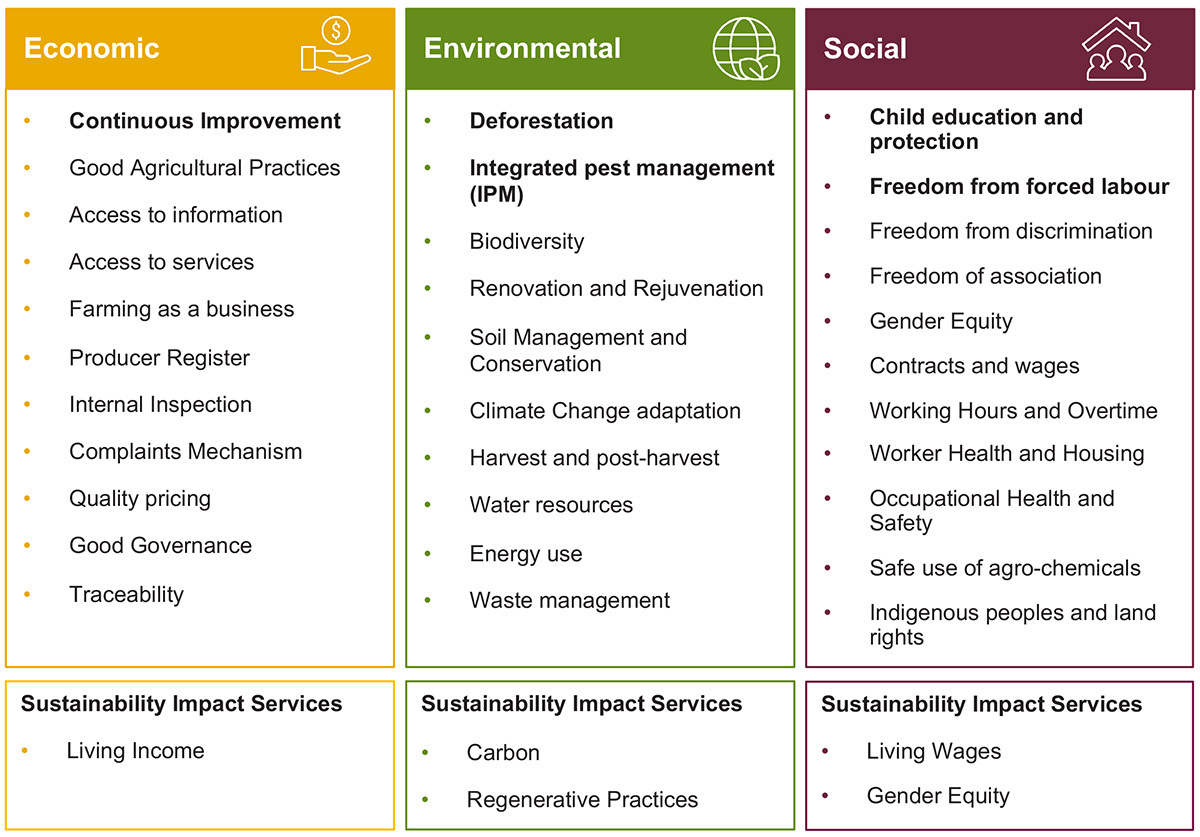
The criteria in this chapter focus on enabling producers to run farms as a profitable business, using practices that build resilience and improve economic well-being. The chapter’s control points address topics including good agricultural practices, access to information and services, farming as a business, continuous improvement, quality pricing, and traceability. A number of the chapter’s control points also relate to Volcafe’s engagement with producers involved in the responsibly sourced value chains. Optional Sustainability Impact Services from Volcafe can create tailored approaches to work toward living income.
Continuous improvement (CRITICAL CONTROL POINT)
Volcafe works with producers (groups) to identify non-compliances and/or poor practices, and to implement action plans with corrective actions that allow the shortcomings to be mitigated or overcome. Continuous improvement is a constant element of addressing all the other topics in the Volcafe RS Standard.
Good Agricultural Practices
Producers are supported – often via trainings and advice – to adopt farming techniques that improve farm performance, coffee quality and the regeneration of their farms.
Access to information
Producers have access to information that is essential for sustainable farming, including prices, offers for services, and avenues for accessing finance.
Access to services
Producers are able to access extension services, agricultural inputs, and financing opportunities.
Farming as a business
Producers use business principles such as cost analysis and record-keeping, with the aim of improving farms’ profitability and sustainability.
Producer register
Volcafe records demographic, geographical and production information about producers and their farms, to document and support assurance of the Volcafe RS Standard.
Internal inspection
Volcafe periodically assesses its own implementation of the Volcafe RS Checklist, identifying areas where improved practice can also benefit producers who engage with Volcafe.
Complaints mechanism
Producers and workers can safely raise concerns through formal channels (local and global), with assurance that Volcafe will address and follow up on concerns using a standardised procedure.
Quality pricing
Producers have access to local prices and price mechanisms, and receive payment that reflects the quality of their coffee.
Good governance
Volcafe actively works to prevent corruption, fraud, bribery, and/or extortion in the value chains, to the benefit of all parties including producers. Compliance with local legislation is also checked.
Traceability
Controls are used to ensure that coffees are traced back to the supplier directly delivering the coffee to Volcafe, and traced forward to Volcafe clients.
The criteria in this chapter focus on enabling producers to maintain productive farms while safeguarding the local ecology. The chapter’s control points address topics including deforestation, biodiversity, renovation and rejuvenation, integrated pest management, soil management and conservation, climate change adaptation, harvest and post-harvest practices, water resources, energy use, and waste management. Optional Sustainability Impact Services from Volcafe allow a customised approach to carbon sequestration and the implementation of regenerative agricultural practices in specific value chains.
Deforestation (CRITICAL CONTROL POINT)
Producers do not deforest or convert forests for coffee farming since 2014. Ecosystems at their farms are protected, and where suitable, reforestation efforts are undertaken by producers.
Integrated pest management (IPM) (CRITICAL CONTROL POINT)
Producers use only nationally permitted pesticides and do not use those on the GCP Prohibited List. Producers use integrated pest management to control pests, diseases, and weeds, and keep records or report on pesticide use.
Biodiversity
Producers take steps to safeguard biodiversity, including keeping up-to-date maps of their farms, avoiding hunting and plant trafficking, and prohibiting the use of GMOs.
Renovation and rejuvenation
Producers regularly stump/prune or replant coffee fields to maintain coffee productivity.
Soil management and conservation
Producers take appropriate steps to improve soil fertility, replenish soil nutrients, and manage soil erosion.
Climate change adaptation
Producers are aware of climate change impacts and take steps to improve resilience of their farms.
Harvest and post-harvest
Producers keep equipment and facilities clean and in good condition, store coffee well, and share guidance with workers on hygiene practices.
Water resources
Producers make careful use of water in irrigation or processing, and take steps to prevent water pollution.
Energy use
Energy use for farming and processing is monitored and reduced where applicable.
Waste management
Producers sort and safely dispose of waste, re-using organic matter to improve soil. Wastewater from processing is treated and any discharges into the local ecosystem meet applicable laws.
The criteria in this chapter focus on enabling men and women to obtain productive work in freedom, equity, security, and human dignity. The chapter’s control points address topics including discrimination, child education and protection, forced labour, freedom of association, contracts, wages, working hours and overtime, worker heath and housing, occupational health and safety, use of agro-chemicals, gender equity, and land rights. Optional Sustainability Impact Services from Volcafe create opportunities to promote living wages and gender equity in targeted value chains.
Child education and protection (CRITICAL CONTROL POINT)
Children under 15 (or legal school age) attend school, and no children below age 18 engage in hazardous work or worst forms of child labour.
Freedom from forced labour (CRITICAL CONTROL POINT)
Any type of forced labour, people trafficking, extortion, abuse, or retention of documents or money is prohibited.
Freedom from discrimination
All workers are treated equally, without discrimination in hiring or employment terms, and the workplace permits no forms of abuse or harassment. Workers in the same position have the same rights.
Freedom of association
Workers can establish and join organisations of their choosing without interference, and regular consultations are held between employer and worker representatives.
Gender equity
Access to trainings for female workers and producers is promoted and tracked.
Contracts and wages
All workers understand their employment conditions and receive (at least) minimum wages. Permanent workers receive written contracts.
Working hours and overtime
The regular work schedule is limited to 48 hours per week, with some exceptions during extraordinary circumstances. Overtime is voluntary and in line with applicable laws.
Worker health and housing
Workers have access to clean toilets and hand washing facilities, potable water, and first aid kits. If worker housing is provided, it is safe and clean.
Occupational health and safety
Workplace risks and hazards are identified and minimised, and regular training is provided to producers and workers about these. Security staff respect human rights at all times.
Safe use of agro-chemicals
Agro-chemicals are safely applied by people wearing protective equipment, and certain people (young, pregnant, nursing) are prohibited from applying them. Re-entry times after use are respected. Agro-chemicals and empty containers are safely stored and disposed of.
Indigenous peoples and land rights
Traditional land use rights of indigenous peoples and local communities are respected. New land and water rights acquisition is carried our with Free, Prior and Informed Consent (FPIC). The legitimate right to use the land is demonstrated by official documents, and there has been no unlawful eviction.
The Volcafe RS Standard is developed for applicability in a variety of settings, and at times local or national legislation may either exceed or fall short of the criteria in the Standard. In the case that applicable legislation is stricter than a requirement in the Volcafe RS Standard, such legislation will prevail. In the case that applicable legislation is less strict than a requirement in the Volcafe RS Standard, the requirement in the Standard will prevail.
Sustainability Impact Services
Sustainability Impact Services allow Volcafe and its clients to jointly engage in activities that address key issues in coffee value chains. These optional, add-on services can be customised to address one or more of the topics below. Get in touch with us to discuss how we can collaborate on any of these topics.
Living income
Volcafe assesses living income gaps and implements projects to close these gaps.
Carbon footprint
Volcafe implements projects to measure and reduce the carbon footprint of coffee production.
Regenerative practices
Volcafe implements projects to promote regenerative practices at farms and at landscape level where relevant.
Living wage
Volcafe assesses living wage gaps and implements projects to close these gaps.
Gender equity
Volcafe implements projects to promote gender equity and/or social inclusion.
Operational details
The Volcafe RS Standard can be used by a variety of stakeholders.
- Coffee Producers (with farms of varying sizes) can have their current sustainability practices assessed, and through engagement with our Volcafe Way field staff, plan targeted improvements based on the Standard.
- Business Partners (such as processors, traders, or cooperatives) can have their current sustainability practices assessed, and through engagement with our Volcafe Way field staff, plan targeted improvements based on the Standard.
- Volcafe Way origin teams can assess value chains (Producers, Business Partners and Volcafe operations) against the Standard, pinpointing any areas for improvement and additional support.
- Coffee roasters and distributors can benchmark the Volcafe RS Standard criteria against their own sustainability standard / objectives, enabling access to responsibly sourced value chains.
The scope of the Volcafe RS standard includes the coffee-growing and coffee-processing areas of Producers’ farms, coffee operations of Business Partners, and Volcafe origin operations. Control point E1.1 on deforestation applies to the entire farm of a Producer.
Geographic Applicability
The Volcafe RS Standard is only applicable in coffee-producing countries where Volcafe has on-the-ground Volcafe Way staff able to implement the Standard, perform associated quality assurance procedures, and manage continuous improvement processes. This currently means Brazil, Colombia, Costa Rica, Guatemala, Honduras, Peru, Tanzania, Uganda, and Vietnam.
Volcafe uses a multi-layered second-party quality and assurance approach in its Volcafe Verified and Volcafe Excellence value chains. The Volcafe Way field and supervision teams have a compliance focus and are responsible for on-the-ground implementation, verification, and oversight to ensure robust implementation and quality assurance. The national and global assurance teams use a process focus to drive continuous improvement of the assurance process. For additional, external assurance, clients can request Volcafe to arrange for an independent third-party verification.
Ultimately, the Producers and Business Partners in the Volcafe Verified and Volcafe Excellence value chains are responsible to implement farm and business practices that meet the Volcafe RS Standard and achieve the expected outcomes. The Volcafe Way field teams verify this using the Volcafe RS Standard and related guidance and make assurance decisions.
Volcafe Way supervision teams are responsible for the risk management in the Volcafe Verified and Volcafe Excellence value chains they manage. They also manage the Volcafe Way field teams and build their capacity and are responsible for the quality of data and services in their value chains.
National assurance teams in each origin provide oversight in all Volcafe Verified and Volcafe Excellence value chains and are responsible for a process-focussed assurance approach. At least annually, they review the various processes (e.g., risk management, traceability, continuous improvement) and identify improvement areas.
The Global Assurance Team is responsible for the overall review of all Volcafe Verified and Volcafe Excellence value chains, using a process-focussed approach. Each year, members of the Global Assurance Team visit at least two origins to assess Volcafe Verified and Volcafe Excellence value chains in more detail.
For additional details on the specific inspection procedures for Volcafe Verified and Volcafe Excellence value chains, please see their respective pages.
The Volcafe Global Sustainability Team is responsible for Volcafe's sustainability strategy, the Volcafe Way farmer support programme, and the development, revision, and implementation of the Volcafe RS Standard and operational procedures.
Governance of the Volcafe RS Standard
The figure below shows the governance and decision-making structure for the Volcafe RS Standard and operational procedures.
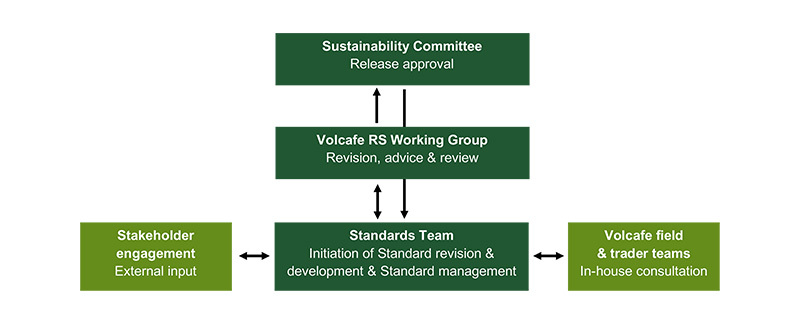
The Standards Team consists of several members of the Global Sustainability Team and can be expanded with additional experts from the company.
The Volcafe RS Working Group is an in-house working group that consists of representatives from several origins where Volcafe buys coffee and includes the Standards Team members.
The Sustainability Committee consists of at least three members.
Standard-setting procedures
The Volcafe RS Standard and its operational procedures are reviewed at least every 5 years. A review is ongoing during FY24/25.
When assurance procedures and other inputs identify areas for improvement in the Volcafe RS Standard, targeted revisions can be made between the formal reviews.
The figure below shows the general process for standard-setting and reviews.
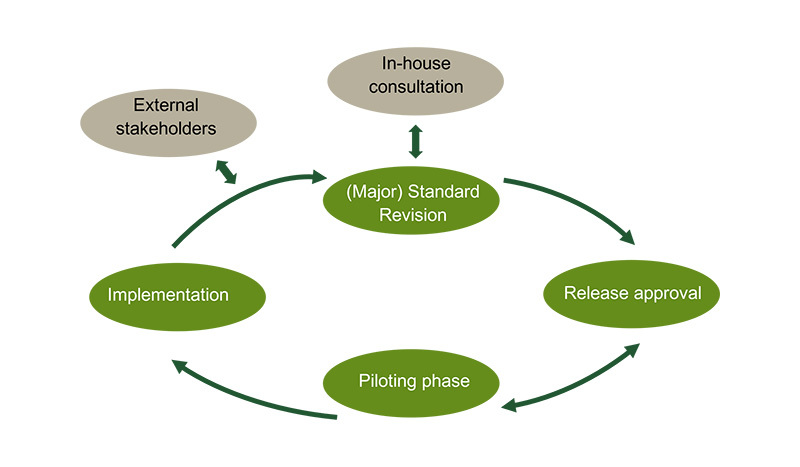
The Standard revision process is initiated by the Standards Team, who work closely together with the Volcafe RS Working Group to review all documents and procedures.
Changes are approved by the Sustainability Committee and final Standards documents are shared with all origins implementing Volcafe Verified and/or Volcafe Excellence value chains.
Supplementary materials
Contact and complaints
To contact the Global Sustainability Team with general questions about the Volcafe RS Standard, please email: email hidden; JavaScript is required
To raise a concern or report an issue regarding the implementation of the Volcafe RS Standard or the conduct of Volcafe employees, please see here.
This page was last updated: 31 Oct 2024


